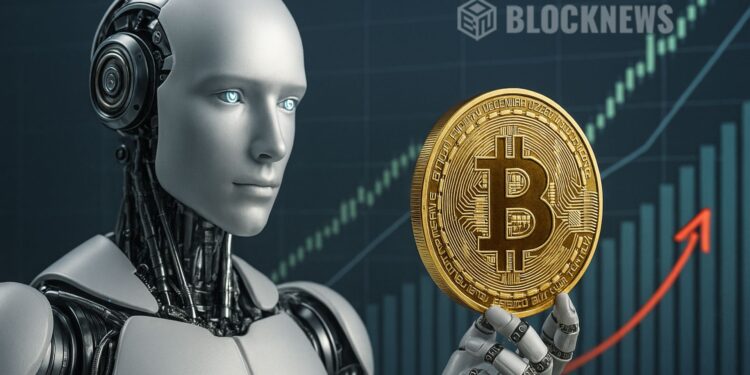- Jordi Visser says AI will make companies poor long-term investments, while Bitcoin endures as a belief system.
- Eric Trump predicts $1M BTC as public companies and governments adopt it as a reserve asset.
- Bitcoin’s $2.1T market cap could rival and surpass gold, boosted by DeFi yield and global accessibility.
Analyst and investor Jordi Visser argued that Bitcoin could outshine stocks in the coming decades, thanks to artificial intelligence speeding up innovation cycles to the point where traditional companies struggle to keep up. In a chat with Anthony Pompliano, Visser compared today’s market to a “video game” where firms never reach escape velocity. “Bitcoin is a belief. Beliefs last longer than ideas,” he said, pointing out that while no company in the S&P 500 existed in 100 BC, gold did—and Bitcoin now shares that kind of longevity. He suggested that as AI compresses centuries of progress into just a few years, investors will favor assets built on belief and scarcity, not fragile corporate models.
Eric Trump Joins the Chorus: $1M BTC Prediction
Visser’s comments came as others in the crypto world made similarly bold claims. At the Bitcoin Asia 2025 conference, Eric Trump predicted that BTC could reach $1 million per coin. He highlighted how nation-states, wealthy families, and even public companies are steadily shifting reserves into Bitcoin, with many firms ditching their old business models to become pure crypto treasury players. These moves, he argued, are accelerating the flow of money out of traditional equities and into digital assets.
Bitcoin’s Edge Over Gold and Legacy Finance
Bitcoin currently holds a market cap of more than $2.1 trillion, and analysts believe it could eventually overtake gold. Unlike gold, Bitcoin’s global accessibility and integration with decentralized finance allow it to generate yield, giving it an advantage as a store of value. The ongoing blend of AI, blockchain, and macro adoption paints a picture of a financial future where digital assets hold the upper hand, while traditional companies and equity markets risk being left behind.














